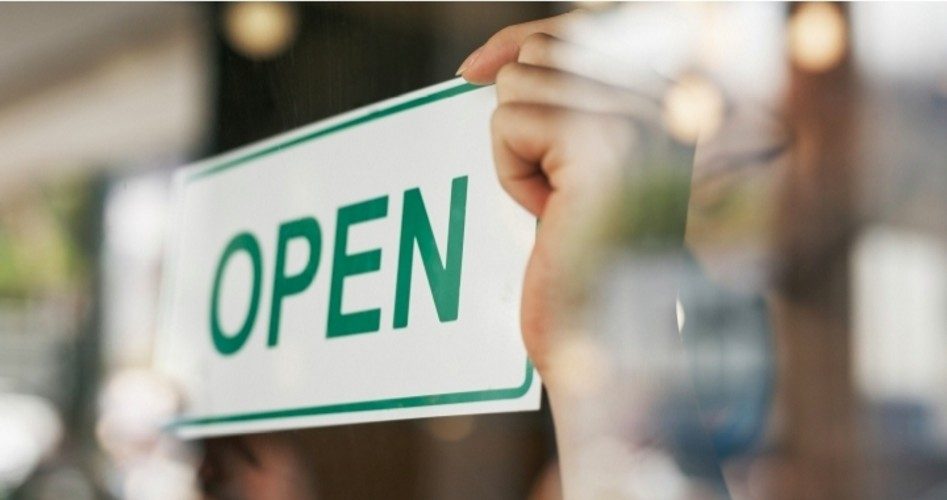
American small-business owners who are being crushed by state orders closing them as “nonessential” are beginning to fight back, opening their doors and daring government to stop them.
Last Wednesday, New York City tailor Eliot Rabin reopened his Upper East Side boutique, Peter Elliot, despite Governor Andrew Cuomo’s executive order shuttering businesses he deems nonessential, a list that does not include liquor stores.
“Why is a liquor store essential and I’m not?” Rabin asked in an interview with the New York Post.
On the one hand, Rabin, 78, said he’s giving his customers “a degree of normalcy in such an abnormal time,” a noble sentiment indeed. He’s even offering them what he called “internal vaccinations: Chivas Regal, Kentucky bourbon — have a nip and you’ll feel better.”
On the other hand, he explained, defying Cuomo is really about saving his business. He has already had to lay off more than half of his employees, some of whom have been with him for decades, and the help the government was supposedly extending to small businesses hasn’t arrived.
“I’m fighting for the soul of my company and my people. I’m doing what I think is right to protect my business and employees from this disaster,” Rabin said. “I hope everyone comes back, but I know they won’t. I’m doing the common sense thing to protect my business.”
According to the Post, Rabin has seen “a handful of customers” since reopening and has begun taking orders for suits for future events.
While Rabin, despite his age, doesn’t fear the coronavirus, he isn’t taking any chances with his employees’ and customers’ health. He’s spraying Lysol all over the place, limiting the number of employees and customers in the store at any one time, and getting masks to supply to customers. “We’ll never put anyone in danger, ever,” he declared.
Rabin isn’t worried about what the government will do to him, either.
“Some [clients] ask, ‘Do you think you’ll get in trouble?’” he said. “If I do get in trouble, it will be for the right reasons. What are they going to do? Yell and scream at me? Fine me $500? It would be worth it, for me to be able to open my mouth and say this is not equitable. If they try to arrest me, I’ll say, ‘Am I in a police state now?’ They’re not going to arrest me.”
Rabin might not feel so confident if he lived in Dallas, Texas, where a beauty-shop owner was cited by police after she reopened her salon Friday in the face of Governor Greg Abbott’s business-closure edict.
Shelley Luther, a single mom who has lost all three of her jobs because of Abbott’s dictates and had to forgo paying her home mortgage to pay her business lease, opened Salon Á la Mode Friday morning with a throng of supporters waiting outside. She, too, was careful not to endanger her employees or clients, requiring everyone to wear masks and taking her customers’ temperatures, but that wasn’t good enough for the busybodies in her neighborhood, who called in multiple complaints about her reopening to Dallas police.
Police responded within an hour and returned throughout the day, finally issuing Luther a citation, which could carry a fine of up to $2,000. Dallas County Judge Clay Jenkins also sent Luther a cease-and-desist letter.
“I don’t want to cause any problems, but when you’re out of money someone has to stand up and say that they’re not helping us by not letting us work,” said Luther.
The next day, Luther appeared at an anti-coronavirus-order demonstration in Frisco — the largest of three such rallies in the state — where she tore up her citation and tossed it in the air.
“I’m not anyone special,” Luther said at the rally. “I just know that I have rights. You have rights to feed your children and make income, and anyone that wants to take away those rights is wrong.”
How true — and how heartening to see Americans standing up for their rights instead of meekly bowing to state and local dictators’ unconstitutional orders. Such tyranny would end overnight if all American businesses simply adopted Rabin’s motto: “I’m opening my doors come hell or high water.”
Image: PeopleImages/iStock/Getty Images Plus
Michael Tennant is a freelance writer and regular contributor to The New American.




